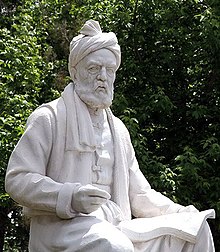
Photo by Suliman Sallehi on Pexels.com
- Origin: Pashto هېواد
- Meaning: “country, homeland.”
- Gender: masculine
The name comes directly from the Pashto word هېواد meaning “country, homeland.”
Another transcription is Haiwad.
Sources

The name comes directly from the Pashto word هېواد meaning “country, homeland.”
Another transcription is Haiwad.
Sources

Ramiz رامز , Ramz رَمْز & Ramzi رمزي are Arabic masculine names which come directly from the Arabic word (ramz) رَمْز , meaning, “code, sign, mark, symbol, gesture.” It is ultimately derived from R-M-Z root in Arabic.
Ramzi appeared in the U.S. Top 1000 Most popular male names between 1973-1990 and peaked at #320 in 1982. It’s usage in the United States may have been influenced by immigrant groups who use the name (Southeastern European Muslims, Arab immigrants & Southeastern Asian Muslims immigrants), mixed with Anglophone parents who were probably using it as an alternate spelling for the English surname/place-name, Ramsey, which means “wild garlic island.” It should also be noted that during this time period, the use of Arabic names became especially popular among African-Americans.
The name is sometimes transliteration as Ramzy and I suppose in the English-speaking world it could also be transliterated as Ramsey.
The feminine forms are Ramza and Ramzia, spelled Ramziya Рәмзия in Central Asian & Turkic languages (Bashkir, Chechen, Tatar).
Other forms include:
Male
Female
Sources

The name comes directly from the Arabic word for forenoon or late morning. In Islam, it is used in reference to Salat ad-Duha صَلَاة الضحى, a voluntary prayer that is said between Fajr and Dhuhr and is used mainly for the atonement of sins.
It is also the name of the 93rd chapter in the Qu’ran, al-Ḍuḥā الضحى, (the Morning).
As a given-name, it is traditionally unisex, but has been more often bestowed on females.
Other forms include:
Sources

Latif is a masculine given-name which comes directly from the Arabic word لَطِيف (gentle; kind; benevolent). In Islam, Al-Latif لطيف, (the Kind; the Benevolent) is one of the 99 names of Allah (God). It’s feminine form is Latifa.
Latif & Latifa are commonly used throughout the Islamic world.
A notable American bearer is actress & singer, Queen Latifah.
Other forms include:
Sources
The name comes directly from the Arabic word for heart. It is used equally among Arab- Muslims & Christians. Among Christians, particularly Palestinians, Chaldeans and Lebanese Christians who profess Roman Catholicism, it is used in reference to the Sacred Heart of Jesus or the Immaculate Heart of Mary, in the same way the Spanish name Corazón is used in the Spanish-speaking world, though in the Arabic case, the name is strictly masculine.
Among Muslims, the term fu’ad is used at least 5 times in the Quran. The name is used throughout the Islamic world.
It is even used among Non-Arab groups in the Middle East, such as Mizrachi Jews.
The name was borne by two Egyptian kings.
Other forms include:
A feminine form is Fuada(h).
Sources
رُمَيْسَة

The name seems to be of disputed etymology, but is Arabic in origin. It was the name of Rumaysah bint Milhan known as Umm Sulaym, one of the first women to convert to Islam. Her son was Anas ibn Malik who was one of the companions of the Prophet Muhammed.
The name itself seems to have several meanings attached to it, according to QuranicNames.com, it possibly derives from رُمَيْسَة and mean “wind that scatters like dust.” If spelled رُمَيْثَة (transliterated as Rumaithah) it is the name of a place. It may also be linked with the Arabic root R-M-TH, which can mean “increasing.” Another association is that it is a feminine form of the Arabic male name Rams/Ramth meaning, “raft.”
Other sources have listed it as meaning “bouquet,” but I could not verify this information. If anyone has anymore information regarding the etymology of this name, it would be much appreciated.
Romaïssa (hro-MY-sah) is a North African variation that has been very popular in the Maghreb and in the Maghrebi Diaspora.
It’s Turkish form of Rümeysa is the 94th most popular female name in Turkey (2019)/
Other transliterated forms include:
Other forms include:
Sources
From the Arabic root R-H-M meaning “kind; merciful; compassionate.” The name is used in reference to الرحيم (al-Rahim), which is one of the 99 Names in Islam used to refer to Allah.
Another transcription is Roheem.
Raheem is currently the 465th Most Popular Male Name in England & Wales.
Rəhim is the Azeri form.
Sources

The name comes directly from the Arabic word فردوس (firdaws), meaning “paradise,” which is ultimately from the Avestan pairidaeza “garden; enclosure.” In Islam, the term firdaws is sometimes used to refer to the highest level of Jannat or Heaven.
The name seems to be traditionally given to both males and females equally. A notable bearer was the 11th-century Persian poet, Firdowsi, who authored the historical epic, Shahnamah (Book of Kings).
 This name is one of the ultimate cross-cultural names, it has various meanings and legitimate origins from Europe, to Asia and to the Middle East.
This name is one of the ultimate cross-cultural names, it has various meanings and legitimate origins from Europe, to Asia and to the Middle East.
The name has been recorded in use in Northern Europe since Medieval Times, possibly being a contracted form of Adalheidis, its offshoots of Talea and Talina have experienced minor recent resurgence in Germany. Tala also been used in most Scandinavian countries, though today, it is considered very archaic.
Tala appears in a 14th-century Swedish folk ballad Herr Holger (which is the subject of a 1996 song by the Swedish band, Gamarna). The ballad recounts the exploits of a greedy tax official who steals tax money for himself. He is caught by King Christian and beheaded. He is condemned to hell, but is able to return to warn his wife, Fru Tala (Lady Tala). He pleads with Tala to return all the wealth she inherited from him, (which in turn was the result of his stolen money), to its rightful owner or else she will experience a similar fate. Tala refuses, as she would rather condemn herself to hell than give up her wealth.
Its Finnish and Estonian form is Taala and Taali, and a Scandinavian masculine version is Tale.
Tala is also the name of a Tagalog goddess of the morning and evening star. In one legend, she is the daughter of the sun god Arao and the moon goddess, Buan. Arao and Buan had a large number of star-children, the eldest being Tala. Arao was afraid his heat would burn up his star-children, so he and Buan decided to destroy them, but Buan reneged on her promise and hid her children behind clouds. Arao got wind of Buan’s secret and, according to legend, continues to try and destroy her, which explains the phenomenon of eclipses. Each morning, Buan runs to hide her children behind the clouds, her eldest Tala being the lookout before dawn, being the personification of the morning star.
In another Tagalog legend, Tala is the daughter of the god Bathala. She is the sister of Hanan (the goddess of the morning) and Mayari, another moon goddess.
In Tagalog, tala means “star; planet; celestial body.”
Tala was recently a hit song by Filipina singer, Sarah Geronimo (2016).
In Indian classical music, Tala is the term used to describe musical meter and rhythm. It literally means “clapping; tapping.”
Tala can also be Arabic تالة (Tala) meaning “Turmeric tree; turmeric spice” or a “small potted palm.”
In Amazigh, one of the languages of the Berber people, Tala means “source; spring or fountain.”
Tala is also Farsi and means “gold.”
In Italy and Romania, Tala is used as a diminutive form of Natalia, a la Romanian actress, Tala Birell (1907-1958).
Tala is the name of a type of decidous tree native to tropical and subtropical South America. Its scientific name is celtis tala.
Other meanings include:
What the name is not:
Many baby name sources have dubiously listed this name as meaning “wolf” in “Native American,” (which is not a language by the way), while other sources have listed this as being Cherokee or Iroquois for “wolf hunter,” but there are no legitimate Cherokee or Iroquois sources collaborating this information. In fact, Native Languages of the Americas has written a fabulous list pertaining to faux Native American baby names and Tala made the list.
As a closing to this post, I recommend this blog post written by a mother explaining the reason why she chose this name for her daughter. It is from 2006, but still a wonderful read D-Log: The Many Meanings of Tala.
Sources
 The name is derived from an Arabic honorific title حكيم that can have several different meanings. The name roughly translates as “sage” or “wise” but it can also mean “physician” or “philosopher” and is often used to denote a doctor, judge or someone highly educated in a particular scientific field in the Arabic world.
The name is derived from an Arabic honorific title حكيم that can have several different meanings. The name roughly translates as “sage” or “wise” but it can also mean “physician” or “philosopher” and is often used to denote a doctor, judge or someone highly educated in a particular scientific field in the Arabic world.
It is also used as a given name in most of the Islamic world,as in Islam, Al-Hakim is one of the 99 names of Allah.
As of 2016, Hakeem 905th most popular male name. Hakeem first entered the U.S. top 1000 in 1989 when it peaked at its highest in popularity, coming in as the 586th most popular male name. Hakim has only appeared in the U.S. Top 1000 one time in 1976, when it was the 881st most popular male name.
In France, Hakim appeared in the Top 1000 between 1961 and 2008 and peaked in popularity in 1981 when it was the 161st most popular male name in France.
Another form is
Sources